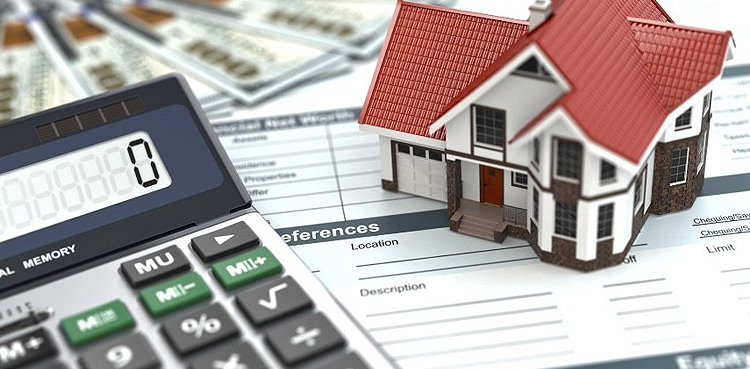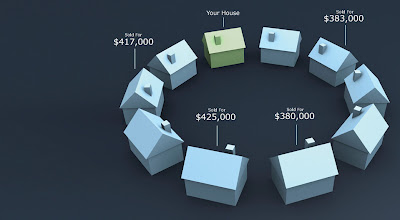Revaluations

The Town of Tiverton is mandated by the State of Rhode Island to conduct property revaluations every 3 years. The Town just completed a statistical update with an effective date of 12/31/2023. Property owners have been notified of their new preliminary assessment as of April 2024. Additional revaluation information can be found below.
Click on the image below to learn more about the revaluation process.
The 2024 Statistical Revaluation is completed. The next revaluation is also a statistical update with an anticipated start date of January 2026 with an effective date of December 31, 2026.
HOW OFTEN DOES THE TOWN CONDUCT A PROPERTY REVALUATION?

The State of Rhode Island mandates that every municipality conduct a property revaluation once every three years. A FULL Revaluation that includes a physical inspection of every property takes place once every 9 years, with a STATISTICAL UPDATE conducted in the 3rd and 6th year following a FULL Revaluation. Statistical Updates do not include a physical inspection of every property, only those that have sold in the year of the revaluation.
HOW YOUR PROPERTY IS APPRAISED:
The assessor's office first reviews all the property to be assessed, then values it. Accurate appraisals require constant searching and digging for significant facts to accumulate and analyze in order to estimate the fair market value of your property.
WHAT IS MARKET VALUE?
Finding the market value of your property involves discovering the price most people would pay for it in its present condition. It's not quite that simple, however, because the assessor has to find what this value would be for every property, no matter how big or small. But the assessor's job doesn't stop there. Every 3 years it has to be done all over again, because the market value of almost everything changes from one year to the next-as we all know.
WHAT METHODOLOGY IS USED TO VALUE PROPERTY?
To find the value of any piece of property the assessor must first know what properties similar to it are selling for, what it would cost to replace it, how much it takes to operate and keep it in repair, what rent it may earn, and many other dollar facts affecting its value, such as the current rate of interest charged for borrowing the money to buy or build properties like yours.
 Using these facts, the assessor can then go about finding the property value in three different ways.
Using these facts, the assessor can then go about finding the property value in three different ways.
- Sales comparison approach
The first method compares your property to others that have sold recently. These prices, however, must be analyzed very carefully to get the true picture. One property may have sold for more than it was really worth because the buyer was in a hurry and would pay any price. Another may have sold for less money than it was actually worth because the owner needed cash right away. The property was sold to the first person that made an offer.
When using the sales comparison approach, the assessor must always consider such over-pricing or under-pricing and analyze many sales to arrive at a fair valuation for your property. Size, quality, condition, location, and time of sale are also important factors to consider.
- Cost Approach
A second way to value your property is based on how much money it would take, at current material and labor costs, to replace your property with one similar. If your property is not new, the assessor must also estimate how much a lot like yours would be worth if vacant.
- Income Approach
The third way is to evaluate how much income your property would produce if it were rented as an apartment house, a store, or a factory. The assessor must consider operating expenses, taxes, insurance, maintenance costs, and the return most people would expect on your kind of property.

How will AI assist with property valuations in the future? Tax Assessor David Robert is beginning to expore this new technology and its impact on the valuation process. As more information becomes available, this section will be updated.
WHY ASSESSED VALUES MAY CHANGE FROM YEAR TO YEAR?
When market value changes, naturally so does assessed value. For instance, if you were to add a garage to your home, the assessed value would increase. However, if your property becomes poorly maintained, the assessed value would decrease.
WHAT CREATES VALUE?
The assessor has not created the value (or the revaluation compnay). It is the SELLERS AND BUYERS that establish market value of property by the recorded sale price of transactions. The assessor simply has the legal responsibility to study those transactions and assess/value your property accordingly.
WHAT ARE YOUR RIGHTS AND RESPONSIBILITIES?
If your opinion of the value of your property differs from the assessor's, by all means go to the office and discuss the matter. The Assessor will be glad to answer your questions about your assessment and explain how to appeal if you cannot come to an agreement. The assessor's office relies on the property owner for information. You can help by providing accurate information and by reviewing your property assessment data HERE.
HOW TO APPEAL YOUR ASSESSMENT.
If you believe that the valuation stated on your annual real estate and tangible property tax bill is incorrect, you may appeal the valuation of your property within ninety (90) days from the date the first tax payment is due by filing an appeal with the Tax Assessor. Appeal forms are available in the Tax Assessor's office. You may appeal the decision of the Tax Assessor within thirty (30) days of receiving the decision, or if the Tax Assessor does not render a decision within forty-five (45) days of the filing of the appeal, not more than ninety (90) days after the expiration of the forty-five (45) day period, to the Tiverton Tax Review Board and present your evidence at a hearing pursuant to applicable Rhode Island General Laws. The Tax Appeal process is outline HERE.
Here is a video that explains the relationship between house values, taxes assessed, and the town's budget requirements. Please note that this video is from New York and the revaluation schedule mentioned is different from Rhode Island. New York is reassessed every 4 years, Rhode Island is every 3.



